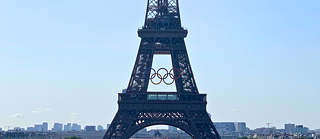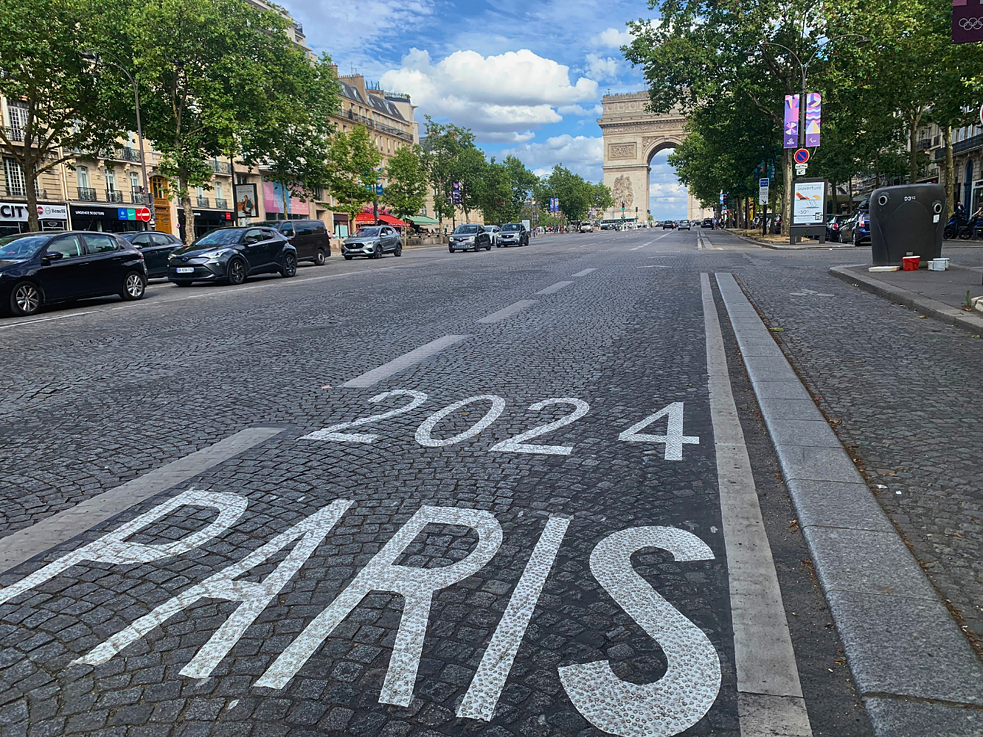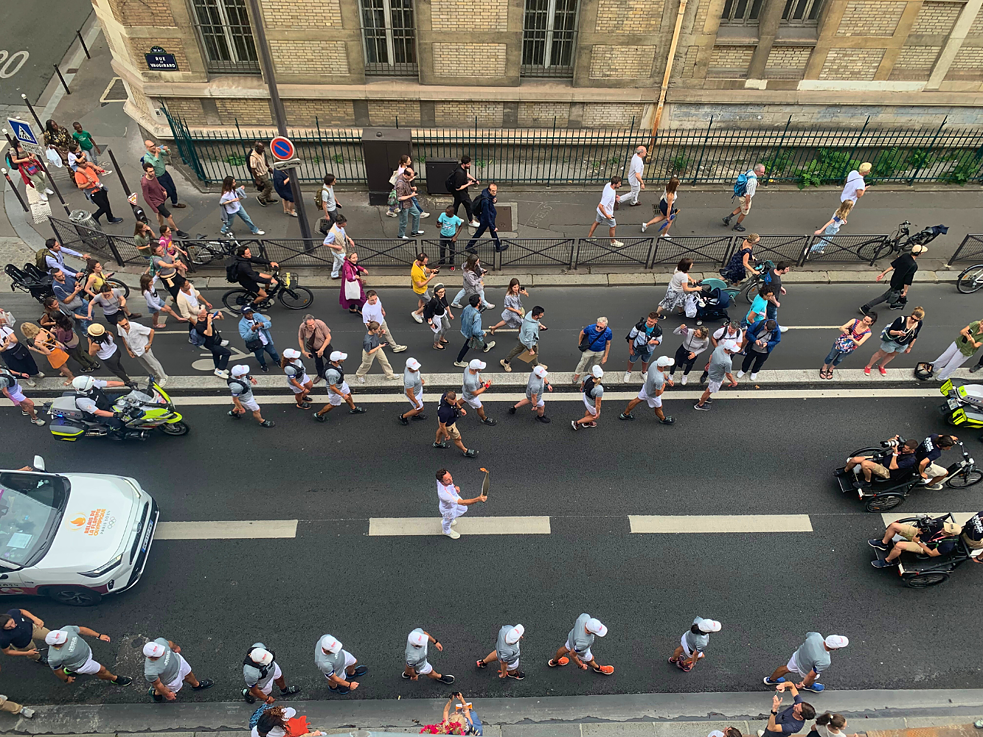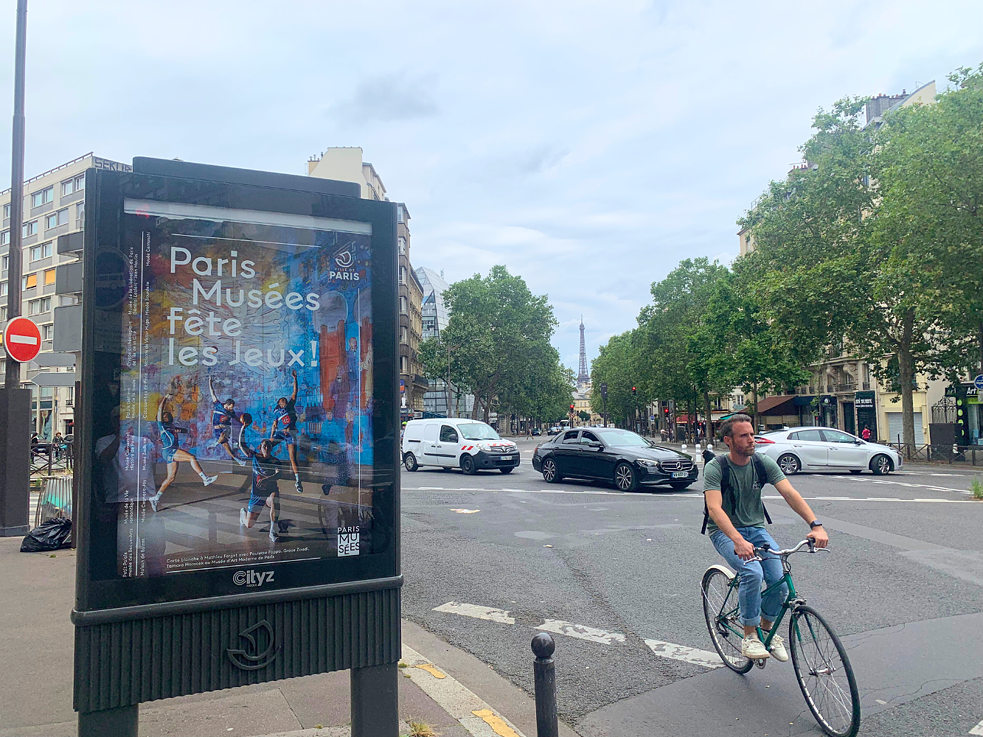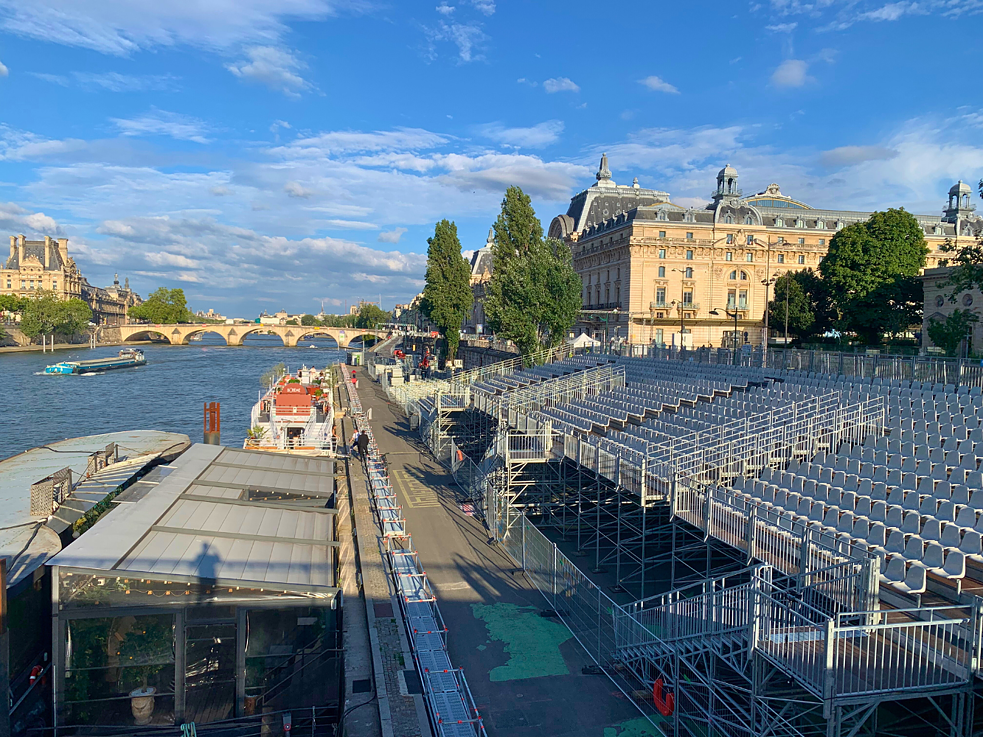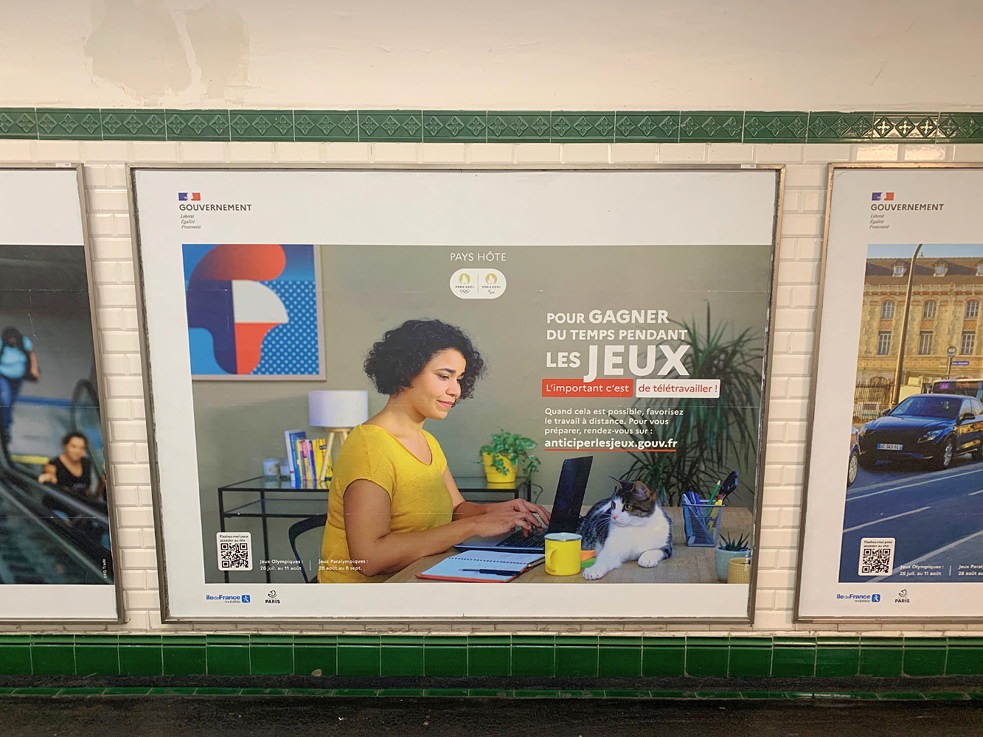This summer, the Olympic Games will be held for the third time in the place where their modern iteration was invented: Paris. Do the Games in the French capital, with their vision of openness, have what it takes to become a model for major sporting events of the future?
"Games Wide Open" - the organising committee is using this ambitious slogan to promote the 2024 Olympics in Paris. In an accompanying promotional video, the traditional Olympic motto Citius, Altius, Fortius (faster, higher, stronger) is joined by a series of ideals: the Games are to be more responsible, more inclusive and more spectacular in this edition. More hospitable, more festive, more urban and more modern on top of that. At a time when major sporting events are increasingly being awarded to totalitarian and restrictive regimes with almost infinite financial power, Paris presents itself as an alternative model of a radically open society. Whether the Games will be a success will depend not least on whether the organiser's ambitious claims can withstand the stress test of reality.This will also be followed with interest in neighbouring Germany, where rejection of the scandal-ridden International Olympic Committee (IOC) has dominated public opinion in the recent past. Corruption, state doping, mountains of debt - rarely has it seemed more unpopular to organise the Olympics. Paris, in fact, more easily won the bid for 2024 because a number of interested cities withdrew their applications under public pressure - including Hamburg, where the majority of the population voted against the Olympics in a referendum. Prior to this, protest movements had already formed in Garmisch-Partenkirchen and Munich against the joint organisation of the 2018 and 2022 Winter Games. Sports-loving Germans from Hamburg to Garmisch are likely to be watching with interest to see whether the vision of the open games in Paris will materialise this summer.
The inclusive games
The undisputed prestige project of Paris 2024 is the planned opening ceremony on the Seine. Instead of the usual stadium lap, more than 10,000 athletes are to parade through the capital on over 600 boats. The idea of making the traditionally most expensive event of the Games accessible to the general public is charming, albeit costly. However, the number of people authorised to attend had to be greatly reduced in advance on behalf of the security authorities. Nevertheless, around two-thirds of the 300,000 tickets expected to be available are to be given away free of charge to sports clubs, volunteers and municipal employees from the economically and socially marginalised banlieues of the metropolitan region.For the first time, as many women as men will be taking part in the sporting competitions. This parity is symbolically emphasised by the route of the marathon, which is based on the historic women's march to Versailles during the French Revolution. In addition, the women's marathon will mark the last day of the competition for the first time - this honour had always been reserved for the men's long-distance race since 1896.
Finally, a strengthened Paralympic Games is also supposed to relay a signal of inclusion by sharing a uniform logo with the Olympic Games for the first time and by being marketed as an equal event, with shared competition venues and mascots. However, in view of the fact that ticket sales for the Paralympic Games have so far been low, it is to be hoped that the euphoria for the top performances of para-sport in Paris will increase. Hopes for a more accessible metro network, on the other hand, were dashed before the Paralympics even began. The goal of providing free transport this summer also had to be cancelled due to fears of overloaded metros and busses. Instead, prices are now rising for all Olympic tourists, and locals are being encouraged to travel as little as possible during the Games.
The responsible games
The Olympic Games have always been an opportunity to push ahead with gigantic infrastructure projects. In the past, however, the focus was mainly on tonnes of concrete poured into countless kilometres of highways and gigantic stadiums. But this year, the emphasis is on sustainable projects. As with the European Football Championships in Germany, the promise is that this will be the greenest Olympics of all time - the verdict is still out.In any case, almost no new competition venues have been built. Instead, Paris is relying on existing arenas in the suburbs and temporary structures in the heart of the city. Investments were made particularly in the suburban département of Seine-Saint Denis, where the Olympic Village will be converted into ultra-modern housing after the end of the Games. In addition, many sports facilities were renovated and will be available to municipalities in the future - the sustainable promotion of youth and popular sports is one of the organisers' key promises.
The extensive cleaning of the Seine, in which the French state has invested more than 1.4 billion euros, has caused quite a stir. Mayor Anne Hidalgo boldly announced that not only Olympic athletes, but also the people of Paris would be able to swim in the river in future. To underline this, she herself wanted to take a much-publicised dip in the Seine before the start of the Games, and President Emmanuel Macron joined in with the promise without further ado. However, the PR stunt had to be postponed again and again due to the still poor water quality. To dispel any doubts, the mayor finally jumped into the cool water a week before the start of the competitions. Macron was notably absent - the political chaos in France on the eve of the Games apparently did not allow for a swimming break.
The spectacular games
First and foremost, the City of Paris itself should provide spectacular images, which will be skilfully staged. Whether it's beach volleyball in the temporary stadium under the Eiffel Tower, archery on the esplanade in front of the Hôtel des Invalides or fencing in the architecturally remarkable Grand Palais - the focus is on a symbiosis of sporting spectacle and cultural-historical monuments. The lively cultural landscape, in turn, is doing its part to boost the sometimes still reserved excitement for the major event: many of the renowned museums are organising special exhibitions to draw attention to the cultural and social importance of sport. In addition, there is a broad programme of events as part of the Olympiade Culturelle - often accessible free of charge.The sporting competitions should ultimately do the rest to present an exciting and modern event. The focus is on urban trend sports, such as skateboarding, 3x3 basketball and the newly introduced breakdancing competitions. The aim is also to benefit from the glamour of global superstars: US gymnast Simone Biles and all-time tennis great Novak Djokovic, who wants to add a golden touch to his career with an Olympic victory, are likely to attract particular attention. But there are also big names among the 400 German athletes: Olympic long jump champion Malaika Mihambo is aiming to defend her title in Paris, while decathlon shooting star Leo Neugebauer is dreaming of a medal. The German basketball team, led by captain Dennis Schröder, should also be travelling to France with confidence as the reigning world champions.
Is an Olympic home game on the horizon for all of them? That will probably also depend on whether the ambitious goals of this year's Games on the Seine can be realised or whether they fall through like the President's dip in the river.
July 2024
